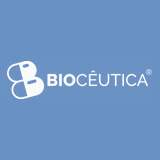In our fast-paced world, maintaining energy levels and mental sharpness is crucial for overall well-being and productivity. While many factors contribute to energy and cognitive function, one vitamin stands out as a particularly vital player: Vitamin B12. This water-soluble vitamin is essential for various bodily functions, including energy production, red blood cell formation, and maintaining the health of your nervous system. In this article, we delve into the multifaceted benefits of Vitamin B12, particularly its role in boosting energy levels and enhancing mental clarity.
What is Vitamin B12?
Vitamin B12, also known as cobalamin, is part of the B-vitamin family and plays a critical role in several physiological processes. Naturally found in animal-derived foods, it is crucial for:
- DNA synthesis
- Red blood cell production
- Neurological function
- Energy metabolism
Vitamin B12 is unique among vitamins due to its complexity and the fact that it contains a metal ion (cobalt). The body stores a significant amount of B12 in the liver, making deficiencies relatively rare, but they can occur, especially in specific population groups.
How Does Vitamin B12 Boost Energy?
1. Energy Production
Vitamin B12 is closely linked to energy metabolism. It plays a pivotal role in converting carbohydrates into glucose, the body’s primary fuel source. Without an adequate supply of B12, the body may struggle to effectively convert food into energy, leading to feelings of fatigue, sluggishness, and exhaustion.
2. Prevention of Anemia
Vitamin B12 is instrumental in the formation of red blood cells. These cells transport oxygen throughout the body, and when they’re deficient or malfunctioning, fatigue is often one of the first symptoms. By ensuring adequate B12 intake, individuals can help prevent anemia, which is a common cause of low energy levels.
3. Enhancing Cardiovascular Health
A deficiency in Vitamin B12 can lead to elevated levels of homocysteine, an amino acid that can increase the risk of cardiovascular problems. Ensuring healthy B12 levels helps to keep homocysteine levels in check, reducing the risk of heart disease and maintaining a healthy circulation system that efficiently delivers oxygen and nutrients throughout the body.
Mental Clarity and Cognitive Function
Beyond physical energy, Vitamin B12 has a significant impact on mental clarity and cognitive function.
1. Neuroprotective Properties
Vitamin B12 is crucial for the maintenance of the myelin sheath, a protective covering that surrounds nerve fibers. A healthy myelin sheath allows for efficient communication between the brain and the body. A deficiency in B12 can lead to neurological issues, including memory loss and cognitive decline.
2. Mood Regulation
Research suggests that Vitamin B12 may play a role in synthesizing neurotransmitters such as serotonin and dopamine, which are vital for mood regulation. Low levels of B12 have been linked to an increased risk of depression and anxiety, impacting mental clarity and overall mental health.
3. Enhanced Brain Function
Some studies indicate that adequate levels of Vitamin B12 may improve cognitive function, particularly in older adults. Regular supplementation can help maintain mental acuity, enhance memory, and improve focus, making it an essential ally for individuals looking to optimize their cognitive performance.
How Much Vitamin B12 Do You Need?
The recommended dietary allowance (RDA) for Vitamin B12 varies by age, sex, and life stage. Generally speaking:
- Adults need approximately 2.4 micrograms per day.
- Pregnant and breastfeeding women require higher amounts (2.6 to 2.8 micrograms).
Because the body can store Vitamin B12 for several years, deficiencies may take time to develop. However, it’s essential to consume adequate amounts regularly, especially for those at risk of deficiency, such as vegetarians, vegans, and older adults.
Sources of Vitamin B12
Vitamin B12 is primarily found in animal-derived foods. Excellent sources include:
- Meat (beef, liver, chicken)
- Fish and shellfish (salmon, tuna, trout)
- Eggs
- Dairy products (milk, cheese, yogurt)
For vegans and vegetarians, obtaining B12 can be more challenging. In such cases, fortified foods (like fortified cereals and plant-based milk) and supplements may be necessary to meet daily requirements.
Conclusion
Vitamin B12 is an essential nutrient that significantly impacts energy levels and cognitive function. For anyone feeling perpetual fatigue, struggling with mental clarity, or looking to enhance their overall health, an examination of Vitamin B12 levels is a worthwhile endeavor. With proper intake and awareness, Vitamin B12 can indeed be your secret weapon for enhanced energy and mental clarity.
FAQs
1. What are the symptoms of Vitamin B12 deficiency?
Common symptoms of Vitamin B12 deficiency include fatigue, weakness, anemia, palpitations, shortness of breath, memory loss, and neurological issues. If you’re experiencing significant fatigue or cognitive changes, consulting a healthcare provider is essential.
2. Who is at risk for Vitamin B12 deficiency?
Individuals at higher risk for Vitamin B12 deficiency include the elderly, vegetarians, and vegans, as well as those with gastrointestinal disorders that affect absorption (e.g., Crohn’s disease or celiac disease). People who have had gastric surgery may also be at risk.
3. How can I increase my Vitamin B12 intake?
You can increase your Vitamin B12 intake by consuming more animal-based foods high in B12, such as meat, fish, eggs, and dairy products. If you’re vegetarian or vegan, consider fortified foods or take a B12 supplement after consulting with a healthcare provider.
4. Is it possible to take too much Vitamin B12?
Vitamin B12 is considered safe, even at high doses, because it is water-soluble, meaning excess amounts are excreted through urine. However, it’s essential to follow recommended dosages, particularly with supplements, to avoid potential adverse effects.
5. Can I get Vitamin B12 from plant sources?
Naturally, Vitamin B12 is not found in plant sources. Some fortified foods like certain cereals, plant-based milks, and nutritional yeast contain added B12. Always read labels to ensure you are getting sufficient amounts if you follow a vegan or vegetarian diet.
Sure! However, I need you to provide me with the specific article title or topic you’d like me to write about. Please share the details, and I’ll be happy to help!




